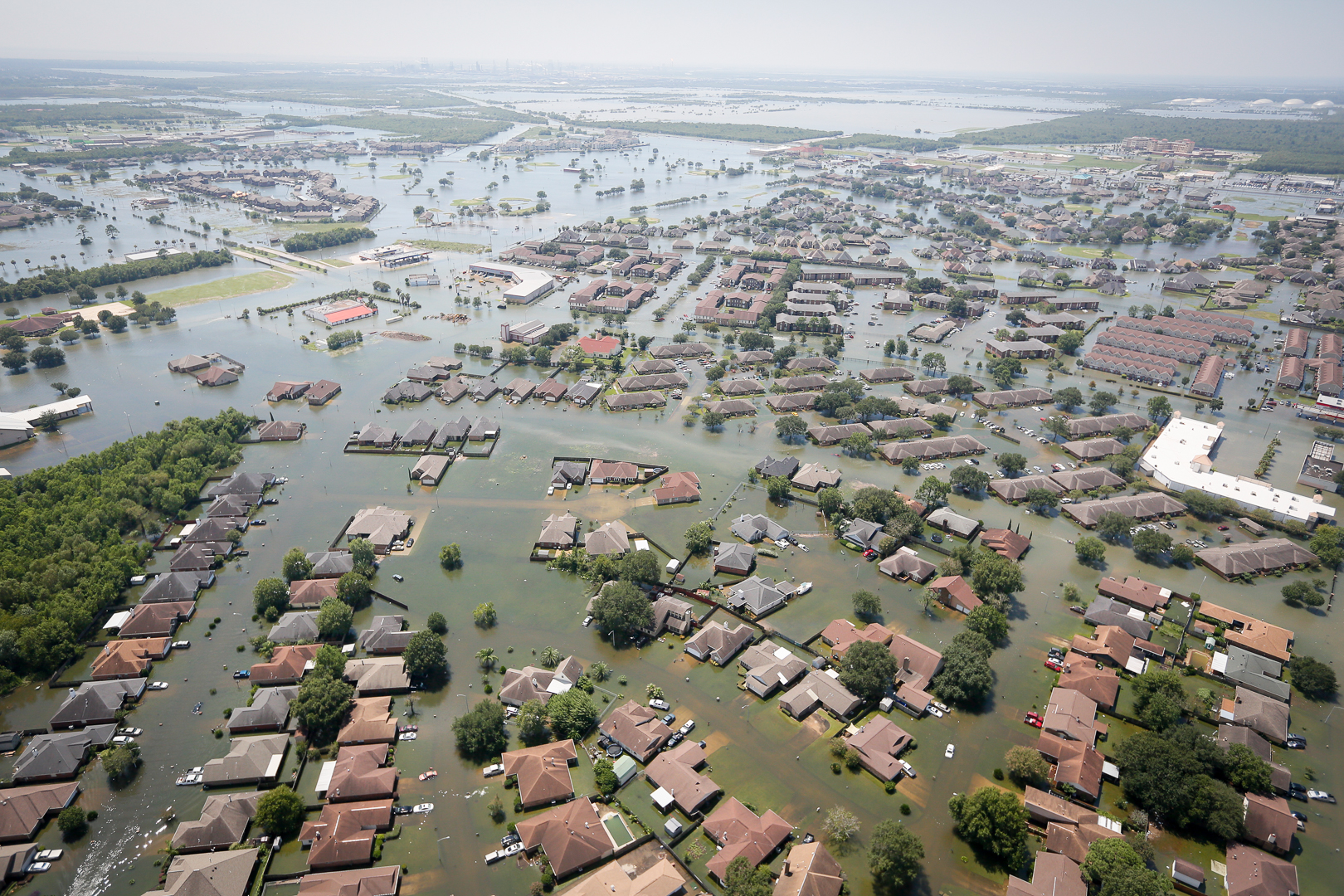Global warming made the extreme rainfall of Hurricane Harvey, which hit Texas in August 2017, three times more likely and fifteen percent more intense than it could have been, scientists, one of whom from TU Delft, found.
Flooding in Port Arthur, Texas, on August 31, 2017. (Photo: U.S. Air National Guard by Staff Sgt. Daniel J. Martinez)
The team includes researchers from the Royal Netherlands Meteorological Institute (KNMI) and a scientist – Antonia Sebastian – who is partially affiliated to TU Delft (section Hydraulic structures and flood risks) and Rice University in Houston.
“We ran models with today’s climate and with the climate before the Industrial Revolution,” says Karin van der Wiel of KNMI. “We simulated several centuries and found that the extreme rainfall caused by Harvey was three times more likely in today’s climate, with an uncertainty margin of 1.5 to 5. The reason for this high uncertainty is that the precipitation in that area varies a lot from year to year. To get a more accurate figure, we would need to run even more simulations. These simulations take enormous computing power.”
The researchers published their findings last month in Environmental Research Letters. The publication made headlines in many important media outlets in the United States, from CNN to The New York Times.
Extremely rare event
Hurricane Harvey stalled over Texas and caused extreme precipitation, particularly over Houston and the surrounding area on August 26–28. This resulted in extensive flooding, over 80 fatalities and huge economic costs. It was an extremely rare event: the return period of the highest three-day precipitation amount observed, 1043.4 millimetres at Baytown, is more than 9000 years. However, the chance of seeing this much rain over a three-day period anywhere across the entire Gulf Coast region is much higher but still small — less than once every 100 years.
The results show that although the rainfall during Hurricane Harvey was exceptional, the trend in extreme rainfall needs to be taken into account when considering upgrading flood defences in Houston and surrounding areas since continued global warming will further increase the risk of extreme precipitation events, the researchers conclude. Less extreme rainfall events have also resulted in major flooding in Houston in previous years, and their return times are also decreasing.
Harvey research team
TU Delft has had ties with the Houston region and Rice University since 2012. In 2015, Delft researchers presented an adapted version of the Dutch Delta Works to protect the Galveston Bay area from hurricane-related flooding. In the aftermath of the flooding from extreme rain, TU Delft researchers set up a Harvey research team in early September 2017. The initiative was supported by DIMI (Deltas, Infrastructures & Mobility Initiative) and the Delft Safety & Security Institute (DSyS).
Do you have a question or comment about this article?
tomas.vandijk@tudelft.nl


Comments are closed.